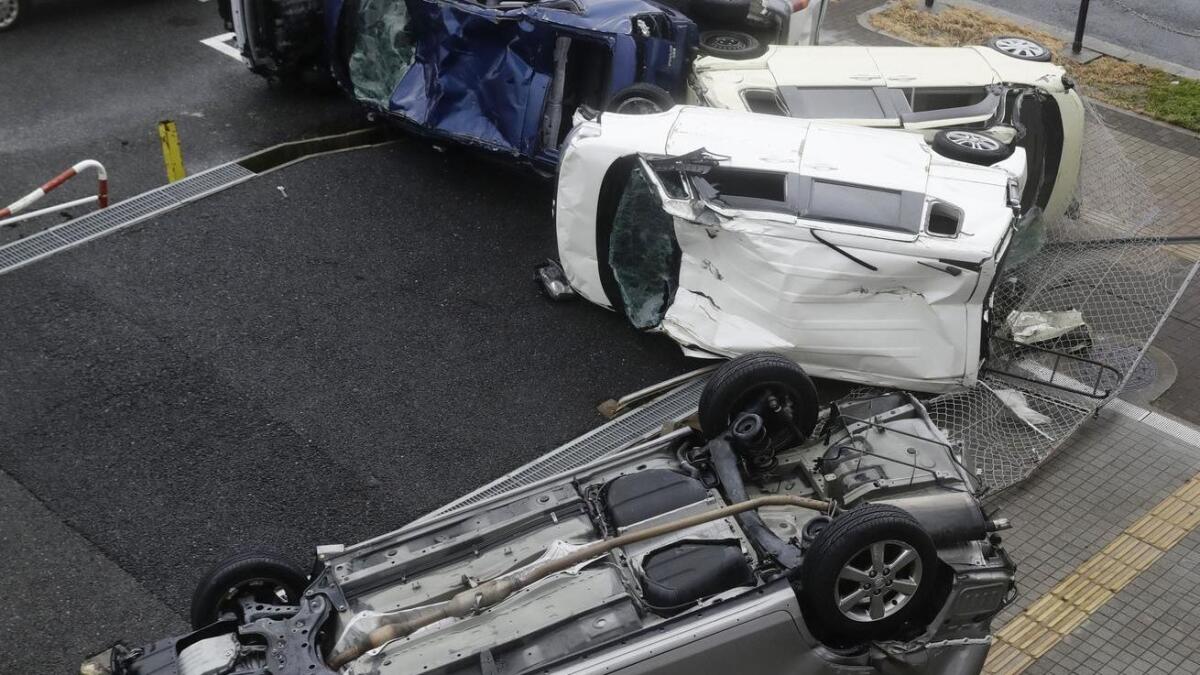In the name of ‘fake news,’ Asian governments tighten control on social media

- Share via
Reporting from Taipei, Taiwan — Su Chii-cherng, head of the Taiwan government office in Osaka, committed suicide in September after he was criticized in mainstream news reports for not having made arrangements to rescue Taiwanese tourists temporarily stranded at a typhoon-flooded Japanese airport.
As it turned out, the foreign ministry in Taipei said, the 61-year-old diplomat was not allowed to send in vehicles, which meant the criticism, based on an unidentified traveler’s tip, was not justified. High-level Taiwanese officials are now citing the incident as they seek to strengthen penalties for the spread of what they deem false reports on natural disasters and food safety.
Taiwan is one of at least seven countries across eastern Asia that have recently enacted or are considering laws to limit or gain access to information about internet reports that officials claim are false, speculative, exaggerated, or truthful yet hurtful. As does President Trump, they often lump such reports under a vague, and often misleading, heading: fake news.
For nations with one-party rule, regulations squelching false or sensitive stories emanating from social media would result in an expansion of longstanding controls over the traditional mass media.
Such efforts have been on the rise over about the last two years due in part to the difficulty of identifying the authors of encrypted messages sent on social media, said Cedric Alviani, east Asia bureau director with the French-based media rights group Reporters Without Borders.
In these nations, the dramatic rise of smartphones has sent social media and overall internet use spiraling. Smartphone shipments to six emerging Southeast Asian countries tracked by market research firm IDC totaled 100 million in 2017, up from 22.5 million in 2012.
Government officials in Southeast Asia are focusing on social media commentary that causes “reputation harm” to themselves and their institutions, said James Gomez, board chair with the nonprofit human rights group Asia Centre in Bangkok.
“Unlike in the U.S., where Trump is attacking to do reputation damage to the fact-based traditional media,” he said, “in Asia, government representatives are focused on discrediting critics.”
In Thailand, authorities, citing “fake news,” have been strengthening their 12-year-old Computer Crimes Act to stop anti-government criticism, regardless of whether the statements are true. The law, initially aimed at stopping slights to the monarchy, has expanded to discourage criticism of the military government that took power in 2014, said Thitinan Pongsudhirak, a political science professor at Chulalongkorn University in Thailand.
In Cambodia, a regulation issued in June authorized an inter-ministerial working group to control “all dissemination of information” that threatened security, the economy or foreign relations.
A Vietnamese law that took effect Jan. 1 required foreign and domestic internet services to hand over user data so authorities could probe the spread of any report and the identity of its author. The Cyber Security Law calls for providers including Facebook and Google to supply user information and delete content at the government’s request. Individual senders of what is deemed false information can already be sentenced to prison under existing law for attempting to undermine state security.
Authoritarian governments in Vietnam and China have more muscle to fight what they brand “fake news” because they already own or censor the major media outlets, Gomez said.
China’s 2017 Provisions for the Administration of Internet News Information Services require that online news providers reprint information from government-approved organizations without changing the content.
Vietnamese officials worry that social media, which is not proactively censored as it is in China, will spread reports that damage their reputation, said Trung Nguyen, international relations dean at Ho Chi Minh City University of Social Sciences and Humanities.
The Thai provision helps the military government prosecute those they say are threatening national security, Pongsudhirak said. Violators face up to 15 years in prison, he said, and “the draconian law has led to rising self-censorship.”
Cambodian officials believe false reports undermine the government, cause social unrest and pose a “genuine threat to national security,” said Carl Thayer, emeritus professor at the University of New South Wales in Australia. The government, run by the party of former Khmer Rouge commander Hun Sen since 1985, has long repressed radio and print, Thayer said, so now it wants to hobble social media used by political opponents.
Some Asian governments have found that libel codes and other existing laws do not cover acts they deem actionable. The Taiwanese tipster was charged under the country’s Social Order Maintenance Act. But a judge threw out the case for lack of evidence that the defendant had caused a “social disturbance.”
In Vietnam, officials will probably sparingly enforce their new law to avoid making citizens angry, Nguyen predicted. Malaysian officials, meanwhile, repealed legislation enacted in August after finding that a 1998 law already covered much of its content.
In Singapore, a city-state with a strong ruling party known for being tough on crime, legislators are considering regulations to strengthen media controls that are already in place. Journalists can now be jailed for libel, threats to national security or “ill will” against religious or racial groups, Reporters Without Borders said.
Even as governments rush to strengthen their laws, some continue to spin their own false reports in media outlets they control in order to discredit critics, said Gomez of the Asia Centre in Bangkok. “Critics are finding themselves on the back foot,” he said, “becoming victims of governmental fake news that is then amplified by the compliant traditional media, and being vilified online by government-aligned trolls and anonymous social media accounts.”
Jennings is a special correspondent.
More to Read
Sign up for Essential California
The most important California stories and recommendations in your inbox every morning.
You may occasionally receive promotional content from the Los Angeles Times.













